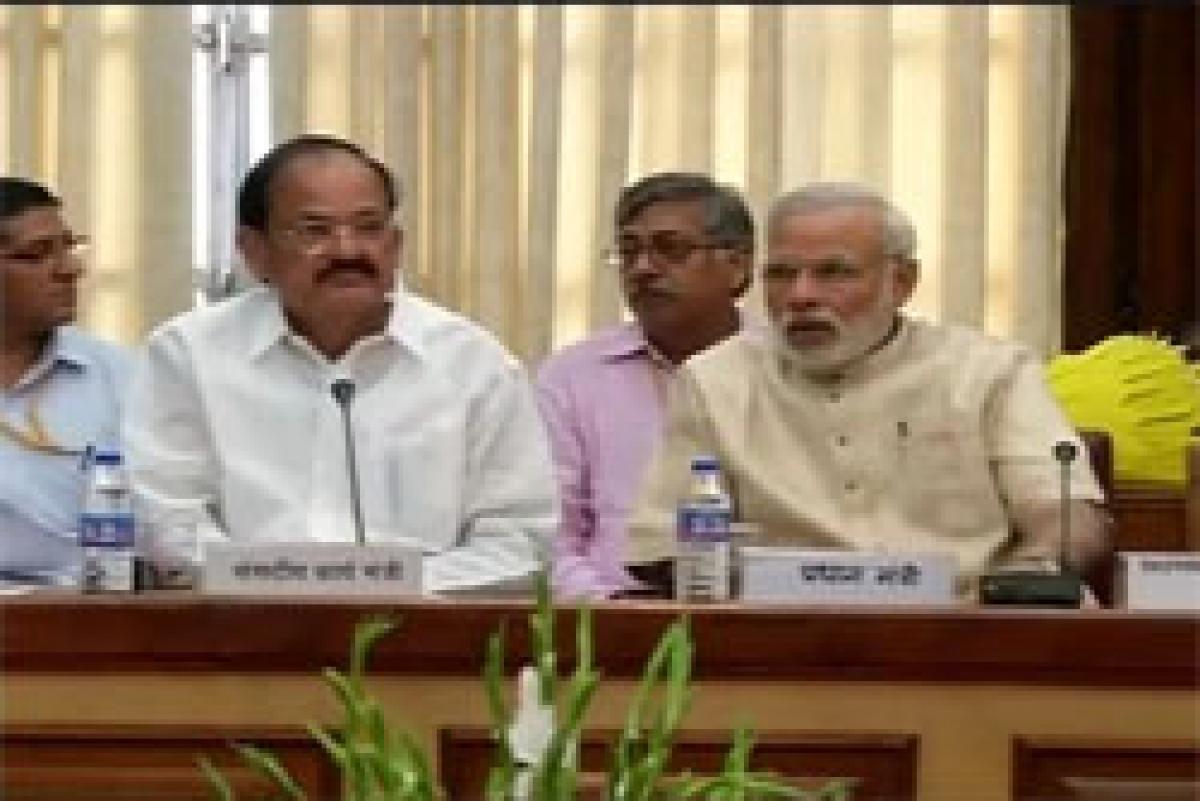Live
- RG Kar issue: Day-long protests in Kolkata today on bail to Ghosh, Mondal
- Plans afoot to bring EPFO service at par with banking: LabourSecy
- vivo unveils X200 series of mobiles
- Sensex, Nifty stage a surprise recovery
- Govt commits to tackling maternal healthcare, deaths
- Capex to touch Rs 11.11-trn target this fiscal
- HCLTech launches TechBee
- Industrial growth recovery expected in H2
- No arrests made yet, says Police Commissioner
- Bhupalapally: 22 selected for kabaddi tournament
Just In

x
Highlights
The Confederation of Indian Industry (CII) has called for an urgent passing of legislations vital for India\'s economic growth.
 The Confederation of Indian Industry (CII) has called for an urgent passing of legislations vital for India's economic growth.
The Confederation of Indian Industry (CII) has called for an urgent passing of legislations vital for India's economic growth.
"Every session of the Parliament is important and each one of us would like to see important issues discussed, deliberated and addressed. Today, key Bills including GST, the Right to Fair Compensation and Transparency in Land Acquisition, Resettlement and Rehabilitation (Second Amendment) Bill, the Electricity Amendment Bill, etc are pending discussion and passage," CII president Sumit Mazumder said.
"We would sincerely wish that attention can be devoted to these and other important economic issues. These are collective responsibilities. The pace of reforms that we have seen in the last two sessions of Parliament should have continued unabated in this session too. This is imperative for the economy. It is critical to be able to be on a steady and certain pace of reforms, including the ones, which need legislative intervention," he added.
CII Director General Chandrajit Banerjee urged the parliamentarians to come together for the common cause of development.
"Industry is keen to undertake the next cycle of investments as soon as the economic reforms process kicks in. With several critical economic bills getting delayed, investment deceleration is plaguing the economy. Core sector growth has slowed down, the industrial production index remains volatile and bank credit is locked up," said Banerjee.
"Parliament holds the key to unlocking the investment pipeline and CII urges taking up the necessary bills. CII believes that India's GDP could pick up to 9-10 per cent in the next couple of years, given the right conditions," he added.
Ajay Shriram, past president, CII, said the industry is concerned that India's economic development might not happen as expected and that the necessary number of jobs and opportunities would not get created at the pace that is required.
"Stalling of Parliamentary procedures leads to delays in crucial decision making. At a time when India is widely expected to contribute to global growth, delay in the reforms process can moderate this pace. Industry expects that our leaders would seize the window of opportunity for the country for expediting growth, which is so important in this stage of India's development," he added.
Adi Godrej, past president, CII, said the GST model has evolved as a consensus through detailed discussions of the Empowered Committee of State Finance Ministers over several years.
"Continued inter-party cooperation for its success can place India on a new growth trajectory. The relevant bill for its introduction must be passed in this Parliamentary session if this vital tax reform is to be introduced by April 1, 2016. The GST is one of the most critical reforms for India as it will create a smooth and efficient market, lower costs and raise tax revenues. We believe it would add as much as 2 percentage points to the rate of growth, which will help generate millions of new jobs. But for this the Parliament must transact business," he added.
Vinayak Chatterjee, Chairman, CII Task Force on Infrastructure, said the Parliament logjam over the last few weeks has certainly raised concerns over pro-active legislative business in the Monsoon Session.
"Crucial bills like the Amendments to the Electricity Bill 2014, Goods and Services Bill, Commercial court and commercial appellate and commercial division in High Court Bill and the Land Bill are pending for approval in the House affecting policies and investment decisions. These bills are aimed at easing business, standardizing tax structures and faster dispute resolution," said Chatterjee.
"Delays therein are affecting economic issues down the line, such as rise in bank non-performing assets, investment sentiment, inadequate uptick in the capex cycle and inadequate job creation," he added.
Members belonging to opposition parties including the Congress, NCP, Trinamool Congress, Left Parties, JD (U), RJD and AAP boycotted the proceedings of the Lok Sabha today.
Leaders of these parties have extended solidarity with the suspended Congress members. However, the Biju Janata Dal (BJD) members took part in the proceedings. (ANI)

Next Story
More Stories
ADVERTISEMENT
© 2024 Hyderabad Media House Limited/The Hans India. All rights reserved. Powered by hocalwire.com







